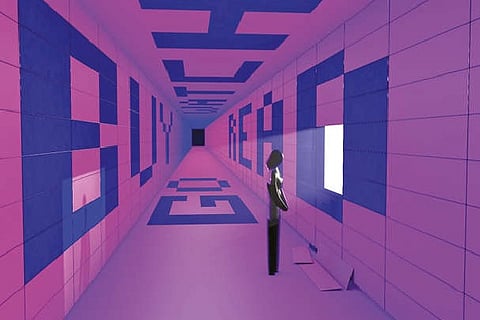

New York
I want robots that will do my laundry and clear my clutter, but that’s not going to happen soon. The innovations I’m most eager to have for myself and the world in 2022 are those that give us more moments of precious connection with others. Heading into the third year of the pandemic, which has separated us physically and further divided us, we need and deserve more microdoses of human empathy and community. Technology can help.
One of my favourite internet creations during the pandemic was Window Swap, a website developed last year by a couple in Singapore that gives people video camera views out of strangers’ windows. You can watch the drizzle on a deck in suburban Pennsylvania, and then scope out what’s happening outside an apartment tower in Seoul. Yesterday, I spent several minutes virtually looking out a pretty window in Reykjavik onto a gloomy sky. In a week full of doom, and my doomscrolling, it was a precious escape and moment of connection to others far away.
Window Swap hasn’t changed the world. I mostly neglected the website a few weeks after I first encountered it. But it is captivating and calming. You don’t see people on Window Swap, but you feel them and glimpse the world through their eyes. That connection, even fleeting, is a precious resource. It’s worth rooting for technologies and ideas that can bring us more of that feeling of togetherness. The audio chat room Clubhouse, which also drew a crowd during COVID — and lately, perhaps less so, brings people together to talk about a topic of shared interest or to role play as a McDonald’s drive-through. A decade ago there was a similar internet fad called Chatroulette, which let people drop in on a stranger by webcam to gab for a few minutes.
You can probably imagine how Chatroulette could, and did, go wrong. It became an opportunity for some people to be profane or disturbing. People on Clubhouse and the similar Twitter Spaces can likewise bully participants or traffic in extremist ideas. Journalists have reported about the companies paying far too little attention to the potential for harm. But I admire the principle behind inventions that bring people together in new ways, and I hunger for creative ideas to help us make connections and find community.
I wrote earlier this year about the challenges to finding information, entertainment and activities that we might like in the sea of internet abundance. Computer models that are trained to understand our tastes can help us find new stuff, but they can pull us further into the familiar or even lead us down dangerous paths. And it’s even harder to find meaningful new people and community than it is to discover new songs. From the beginning of internet life, many apps and websites have promised connection. Sometimes they deliver, and other times human ties over cyberspace are a poor substitute for the real thing. But I still believe in that promise of bringing the world together online to try to better understand one another and our world. That hope is now complicated, yes, because there are so many horror shows.
There is also a nagging part of my brain that doubts we really have what it takes to come together and heal rifts. What if we see the world through other people’s eyes and it makes us angrier and more divided? But I need to believe in the best of what people and human community can do. And I want more big and small technology ideas to help us.
Ovide is a tech writer with NYT©2021
The New York Times
Visit news.dtnext.in to explore our interactive epaper!
Download the DT Next app for more exciting features!
Click here for iOS
Click here for Android